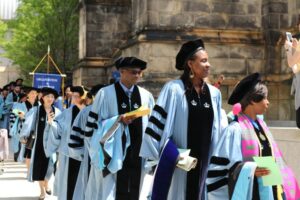As the pursuit of medical excellence takes center stage, the quest for the top universities for medical school intensifies. This comprehensive guide unveils the secrets of these prestigious institutions, delving into their global rankings, research prowess, clinical training opportunities, faculty expertise, and student life.
Embark on an enlightening journey as we unravel the factors that shape the pinnacle of medical education.
In this meticulously crafted exploration, we will analyze the impact of reputation, research output, and faculty expertise on student recruitment and career prospects. We will uncover the universities that reign supreme in specific medical specialties, offering unparalleled opportunities for students to engage in cutting-edge research and gain invaluable clinical experience.
Join us as we navigate the intricate landscape of top medical universities, empowering you with the knowledge to make informed decisions about your future in medicine.
Global Rankings and Reputation
The global ranking of universities for medical schools is a key indicator of their academic excellence and reputation. These rankings are determined by a variety of factors, including research output, faculty expertise, and student outcomes. The top-ranked universities consistently attract the best and brightest students and offer them access to world-class facilities and resources.
Reputation is also an important factor in student recruitment and career prospects. A university with a strong reputation will be more attractive to potential students and will provide its graduates with a competitive advantage in the job market.
Research Output
Research output is a key indicator of the quality of a university's medical school. The number of publications in high-impact journals, as well as the amount of research funding received, are both important factors in determining a university's ranking. The top-ranked universities consistently produce a high volume of high-quality research, which contributes to the advancement of medical knowledge and practice.
Faculty Expertise
The faculty expertise of a university's medical school is another important factor in determining its ranking. The top-ranked universities have faculty members who are leaders in their fields of research and who are committed to teaching and mentoring students. This ensures that students receive the highest quality of education and training.
Student Outcomes
Student outcomes are also an important factor in determining a university's ranking. The top-ranked universities have high rates of student satisfaction and graduation, as well as high rates of placement in residency programs. This indicates that students are receiving a high-quality education and are well-prepared for their careers in medicine.
Specializations and Research Strength
Universities with robust medical research programs are crucial for advancing medical knowledge and improving patient care. These institutions offer specialized research centers, cutting-edge technologies, and opportunities for students to engage in groundbreaking research.
Identifying universities with strong research programs in specific medical specialties is essential. For instance, some universities excel in cardiology, neurology, or oncology, providing students with unique opportunities to work alongside leading researchers and contribute to groundbreaking discoveries.
Research Centers and Impact on Patient Care
Specialized research centers within universities play a vital role in advancing medical research and improving patient care. These centers bring together multidisciplinary teams of researchers, clinicians, and students to focus on specific medical conditions or areas of research. By fostering collaboration and sharing resources, these centers accelerate the pace of discovery and innovation, leading to improved treatments and outcomes for patients.
- Example:The Mayo Clinic in Rochester, Minnesota, is renowned for its specialized research centers in cancer, cardiovascular disease, and neurology, which have made significant contributions to medical advancements.
- Example:The Johns Hopkins University School of Medicine in Baltimore, Maryland, houses the Sidney Kimmel Comprehensive Cancer Center, a leading research center dedicated to cancer research and treatment.
Opportunities for Student Engagement in Research
Universities that offer unique opportunities for students to engage in cutting-edge research provide invaluable experiences for aspiring medical professionals. Through research fellowships, internships, and mentorship programs, students can gain hands-on experience in the field, develop their research skills, and contribute to the advancement of medical knowledge.
- Example:Harvard Medical School in Boston, Massachusetts, offers the Medical Scientist Training Program (MSTP), a highly competitive program that combines medical school with a PhD in biomedical research.
- Example:Stanford University School of Medicine in Stanford, California, provides students with access to the Stanford Center for Innovation in Global Health, where they can participate in research projects focused on global health challenges.
Clinical Training and Patient Exposure

Top universities prioritize clinical training and patient exposure, recognizing their importance in developing competent medical professionals. Students benefit from access to renowned teaching hospitals and diverse patient populations, enabling them to gain hands-on experience and build a strong foundation for their careers.
Mentorship is crucial in clinical training. Seasoned faculty and clinicians provide guidance and support, nurturing students' clinical skills and decision-making abilities. Clinical rotations expose students to various medical specialties, allowing them to refine their interests and prepare for residency programs.
Clinical Rotations
Top universities offer a wide range of clinical rotations, providing students with exposure to different medical specialties. These rotations typically include:
- Internal Medicine
- Surgery
- Pediatrics
- Obstetrics and Gynecology
- Psychiatry
- Family Medicine
Residency Programs
Residency programs are essential for medical graduates to specialize in a particular field. Top universities have strong partnerships with leading hospitals, offering competitive residency programs in various specialties. These programs provide advanced training and research opportunities, preparing residents for successful careers as physicians.
Faculty and Curriculum
:max_bytes(150000):strip_icc()/GettyImages-83205982-8bc86fc5500b4495b29340aaa8f03fe2.jpg?w=700)
Top medical schools boast exceptional faculty members who are renowned for their research accomplishments and extensive teaching experience. They bring a wealth of knowledge and expertise to the classroom, ensuring students receive a high-quality education grounded in cutting-edge research.
The curriculum structure is meticulously designed to provide students with a comprehensive understanding of the medical field. Innovative teaching methods, such as problem-based learning and simulation-based training, enhance the learning experience and prepare students for real-world clinical practice.
Specialized Courses and Programs
Many top universities offer specialized courses and programs that cater to students' individual interests and career aspirations. These programs provide in-depth knowledge in specific areas of medicine, such as global health, medical ethics, or research.
Student Life and Support

Top universities offer vibrant and diverse student life experiences that foster academic and personal growth. Students engage in a wide range of extracurricular activities, clubs, and organizations that cater to various interests, including sports, music, art, and community service.
These universities prioritize student support services to ensure their well-being and academic success. Comprehensive academic advising, counseling, and career development resources are available to assist students with course selection, academic planning, and career exploration.
Diversity and Inclusivity
Top universities are committed to creating inclusive and supportive learning environments for students from all backgrounds. They implement diversity and inclusivity initiatives to promote a sense of belonging and equity for all.
- Diversity programs:Universities establish programs to recruit and support students from underrepresented groups, such as minority students, first-generation college students, and students with disabilities.
- Cultural centers:Dedicated spaces are created for students to connect with their cultural identities and engage with others from diverse backgrounds.
- Affinity groups:Student-led organizations provide a safe and supportive space for students to connect with peers who share similar experiences or identities.
Conclusive Thoughts
Our exploration concludes with a captivating summary of the defining characteristics that set top universities for medical school apart. These institutions stand as beacons of academic excellence, offering students an unparalleled blend of theoretical knowledge, practical experience, and research opportunities.
As you embark on your journey to become a future healthcare leader, may this guide serve as your trusted compass, illuminating the path towards the university that will ignite your passion and shape your destiny in medicine.
FAQ Compilation
What are the key factors to consider when choosing a top university for medical school?
When selecting a top university for medical school, prospective students should meticulously evaluate factors such as global rankings, research output, faculty expertise, clinical training opportunities, curriculum structure, student life, and support services.
How do research opportunities contribute to the quality of medical education?
Universities with strong research programs provide students with exceptional opportunities to engage in cutting-edge research, fostering their critical thinking, problem-solving skills, and ability to contribute to the advancement of medical knowledge.
What is the importance of clinical training in medical school?
Clinical training is an indispensable component of medical education, allowing students to apply their theoretical knowledge in real-world settings, develop essential clinical skills, and gain invaluable experience in patient care.
How does student life contribute to the overall experience of medical school?
A vibrant student life fosters a sense of community, provides opportunities for extracurricular activities, and promotes a healthy work-life balance, all of which contribute to the overall well-being and success of medical students.




